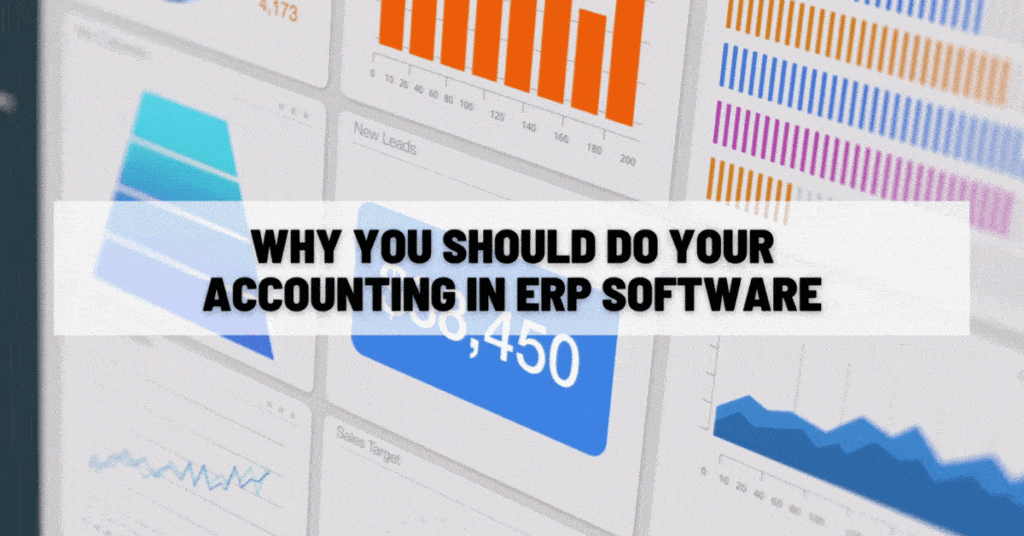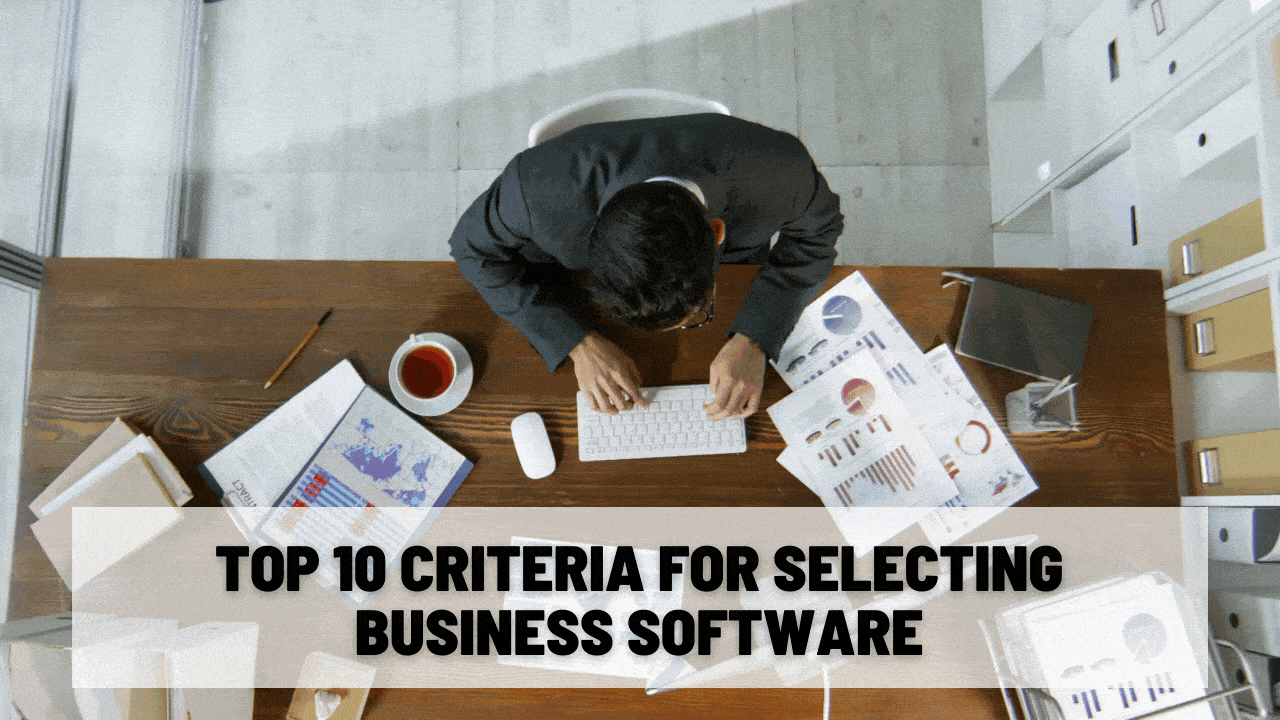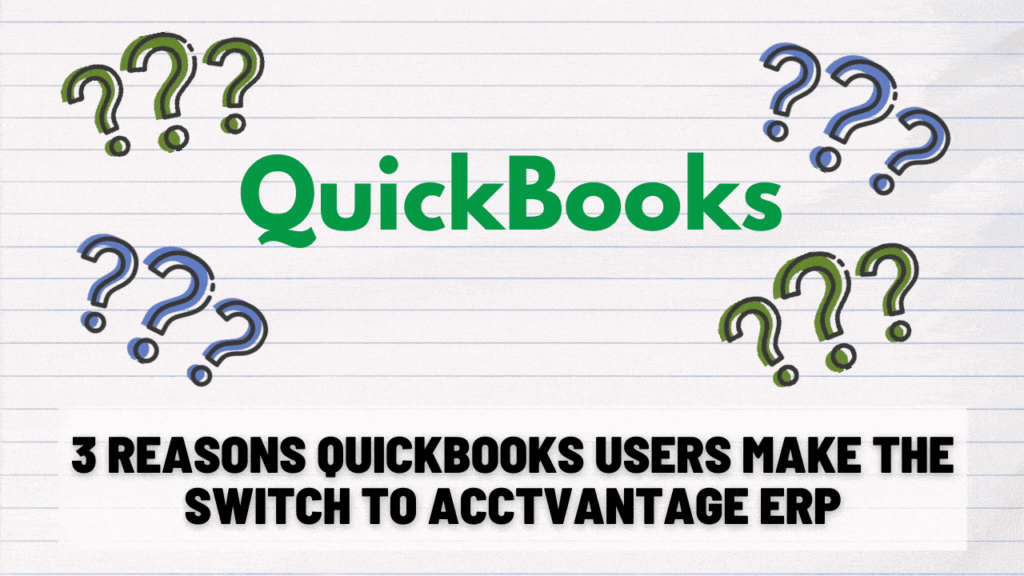Why You Should Do Your Accounting In ERP Software
Accounting software helps businesses keep track of all aspects of their finances. But ERP software goes a step beyond that. An ERP (enterprise resource planning) system helps companies manage all aspects of their business operations, including finance, warehouse, inventory, human resources, manufacturing, sales, marketing, customer service, and many others.
In an ERP system, all your business’ operations are managed in one interconnected database. That integration of data benefits your whole business. But on the accounting side in particular, it provides several major advantages.
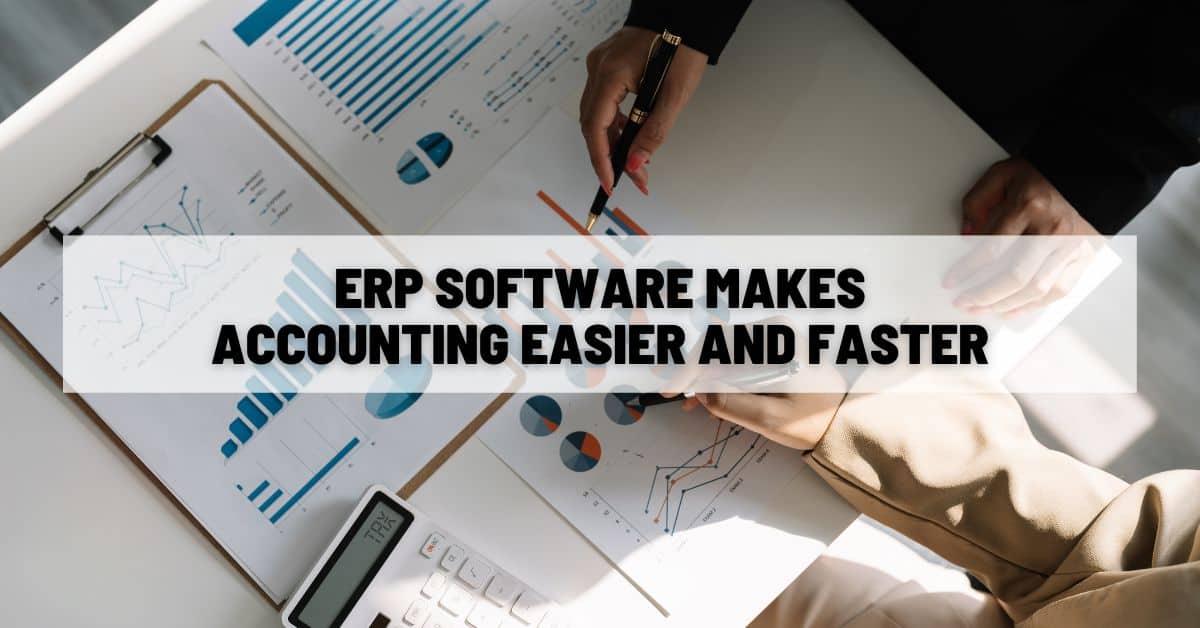
ERP Software Makes Accounting Easier and Faster
When you use two different systems for accounting and inventory, like spreadsheets for inventory and some off-the-shelf package for accounting, there’s always a lot (and we mean a lot) of manual work involved to get accurate results. You have to enter information from each transaction, often in two places, then you have to manually make sure everything matches up.
This process takes constant double entry of the same data as well as lots of time, which means mistakes happen often enough that they will cause constant headaches for you and your customers.
In an ERP system, your financial records refer directly to your inventory levels, purchases, sales, payments, and receipts. No manual math for you to do, just tell the program what records to pull from its database. And since the data comes straight from the source instead of having been reentered by hand, you can count on the accuracy of every number.
This makes it easier for you to spot any data entry errors sooner, so you don’t end up losing money because someone made a mistake entering something incorrectly. It also lets you make better decisions based on real numbers rather than guesses about how things might be going.
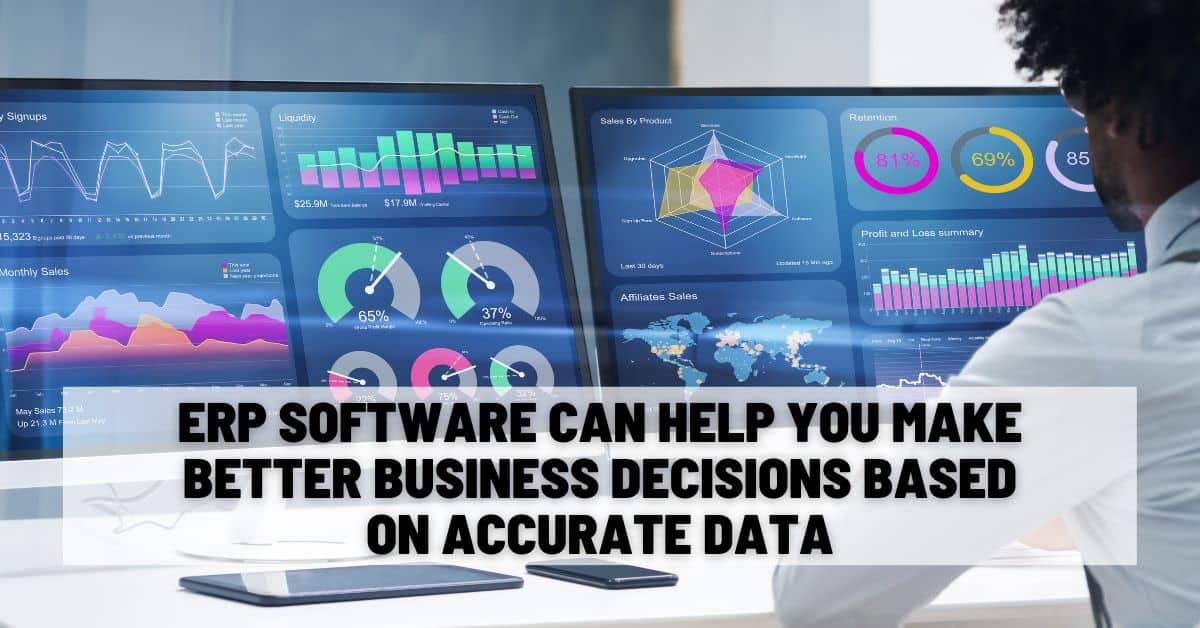
ERP Software Can Help You Make Better Business Decisions Based on Accurate Data
One big advantage of using an ERP system for accounting purposes is that it gives you access to a wealth of additional reports and analytics tools. These help you analyze trends over time, spot opportunities and threats early, and plan ahead effectively.
For example, if your business has multiple locations, you can see which ones are performing well and which aren’t. If you notice that one location seems to always have trouble meeting quotas, maybe it needs some extra training or support. Or perhaps it would benefit from moving closer to customers who live nearby. In either case, this kind of insight allows you to take action quickly to improve performance.
That’s the power of an ERP approach. Everything from sales data to inventory levels to daily expenses is stored in one system, so you’re not limited to looking only at one part of the picture at a time. Instead, you can look at everything together and draw conclusions that were never available before.
All in all, investing in an ERP system is a step in the right direction for businesses who want to optimize and future-proof their accounting processes.
Not only will it make your accounting work easier and faster, but by giving you access to real-time data and analytics, it can help you make better business decisions that are based on accurate, multidimensional information.
To find out how AcctVantage ERP can support your ongoing business growth and success, click here to get in touch with us.


